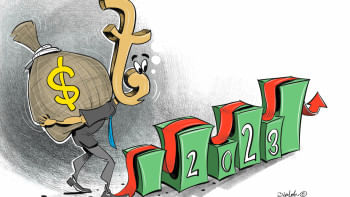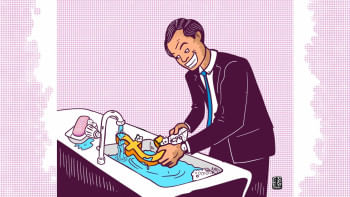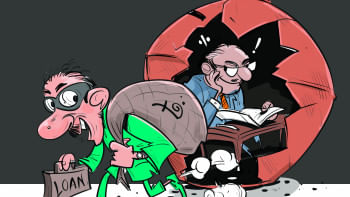Don't let corruption hurt businesses

The findings of a recent study by the Centre for Policy Dialogue (CPD) – which itself is a part of the World Economic Forum's annual survey – are quite alarming, if not entirely surprising. It says that Bangladesh's business environment deteriorated in 2022 largely because of corruption, with as much as 65 percent of respondents complaining about it, saying corruption was proving to be a major barrier for them to conduct business. The majority of the respondents faced corruption in paying taxes (48 percent), receiving licences (54 percent) and securing connections for utilities like gas, electricity, and water (49 percent), as well as during export-import activities (75 percent).
About 53 percent of small and micro level enterprises consider corruption as the most important barrier to doing business in Bangladesh, while 71 percent of medium-sized firms and 59 percent of large firms also feel the same. In such dismal circumstances, it is ironic that the party in power still claims to have "zero tolerance" for corruption. It is also ironic that it tries to take credit for being pro-business at every opportunity, when the reality is, corruption has reached never-before-seen levels during its tenure.
The CPD survey has also found inadequate infrastructure to be the second most problematic factor in doing business, followed by inefficient government bureaucracy and limited access to finance, as per feedback from senior officials of different firms based in Dhaka, Chattogram, Narayanganj, and Gazipur. The effect of all these institutional factors has been exacerbated after the emergence of new challenges such as higher inflation, volatility in the foreign currency market, and policy instability.
Because corruption has become so widespread and deeply entrenched, the cost of production for businesses has gone higher too, which ultimately leads to additional suffering for the general people who have to pay more for goods and services. And that has been made worse with the government raising fuel prices by unprecedented amounts in recent times. All these factors are worsening the business environment in the country, when businesses are already suffering due to external issues.
The fact that Bangladeshi businesses have made tremendous progress over the years, in spite of these obstacles, speaks to their potential. Had corruption been lower in the country, businesses surely could have contributed more to the economy, and exports could have been more competitive, eventually adding to our foreign exchange reserve – which is currently under substantial pressure. This is something that needs to be urgently recognised: that under the current circumstances, where businesses are already under immense pressure, corruption and poor government policies will definitely hurt us much more than if things were normal.
With Bangladesh being on the cusp of graduating from its Least Developed Country status – which will change how the world interacts with us – and the new challenges that it will bring forth, the last thing our businesses need is to be set back time and again by unchecked corruption. The government, therefore, needs to take immediate measures to prevent it, instead of repeating its outdated rhetoric.


 For all latest news, follow The Daily Star's Google News channel.
For all latest news, follow The Daily Star's Google News channel. 








Comments